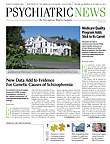The publication of DSM-IV in 1994 was a watershed moment for cultural psychiatry with the manual’s new Outline for Cultural Formulation (OCF), glossary of culture-bound syndromes, culturally relevant diagnostic categories, and cultural considerations in the narratives introducing each chapter.
DSM-5 advances the evolution of the practice of cultural psychiatry with the Cultural Formulation Interview (CFI). Based on the OCF, it is a 16-question interview, with 12 supplementary modules (Explanatory Model; Level of Functioning; Psychosocial Stressors; Social Network; Cultural Identity; Spirituality, Religion, and Moral Traditions; Coping and Help Seeking; Patient-Clinician Relationship; Immigrants and Refugees; School-Age Children and Adolescents; Older Adults; and Caregivers), which can be accessed with the CFI at
http://www.psychiatry.org/practice/dsm/dsm5/online-assessment-measures. This column will highlight the most useful of the 16 questions, broken down into four sections: (1) Cultural Definition of the Problem (1–3); (2) Perceptions of Cause, Context, and Support (4–10); (3) Cultural Factors Affecting Self-Coping and Past Help Seeking (11–13); and (4) Cultural Factors Affecting Current Help Seeking (14–16). The clinician wanting to perform a culturally appropriate assessment now has sample questions to use to collect the clinical data for the OCF.
Cultural Definition of Problem and Perceptions of Cause, Context, and Support
Question 2 is an extremely effective way of determining how the patient’s community sees the patient’s illness: “Sometimes people have different ways of describing their problem to their family, friends, or others in their community. How would you describe your problem to them?”
Questions 3 to 5 are extensions from Arthur Kleinman’s eight questions about explanatory models (Kleinman, et al., 1978), which ask patients to identify their concerns, why they think it is happening, and what are the causes? (3. What troubles you most about your problem? 4. Why do you think this is happening to you? What do you think are the causes of your problem? 5. What do others in your family, friend, or others in your community think are the causes of your problem?)
Questions 9 and 10, which ask the patient to explain how he or she sees cultural identity as making the patient’s problem worse or better, explore the role of cultural identity in the patient’s illness. (9. Are there any aspects of your background or identity that make a difference to your problem? 10. [Or] are causing other concerns or difficulties for you?)
Help Seeking
The last six questions focus on how the patient has gotten help in the past and where he or she will get help in the future. Questions 11 and 12 ask the patient what he or she has tried in the past. Not only do the questions show interest in the patient, but they also give the clinician information about the patient’s health beliefs that can be used during the discussion of the treatment plan. (11. Sometimes people have various ways of dealing with problems like your problem. What have you done on your own to cope with your problems? 12. Often, people look for help from many different sources, including different kinds of doctors, helpers, or healers. In the past, what kinds of treatment, help, advice, or healing have you sought for your problem?) Question 14 asks the patient what he or she thinks would be helpful, while Question 15 looks at what others have advised, further putting the clinician’s advice to the patient in context with the patient’s health beliefs.
Question 16 asks the patient if he or she has concerns about the therapist-patient relationship, completing the fourth part of the OCF. The 16 questions of the CFI and its 12 supplementary modules equip any clinician with sample questions to perform a culturally appropriate assessment and create a cultural formulation that will engage the patient in treatment and serve as an important advance in the practice of cultural psychiatry. ■

